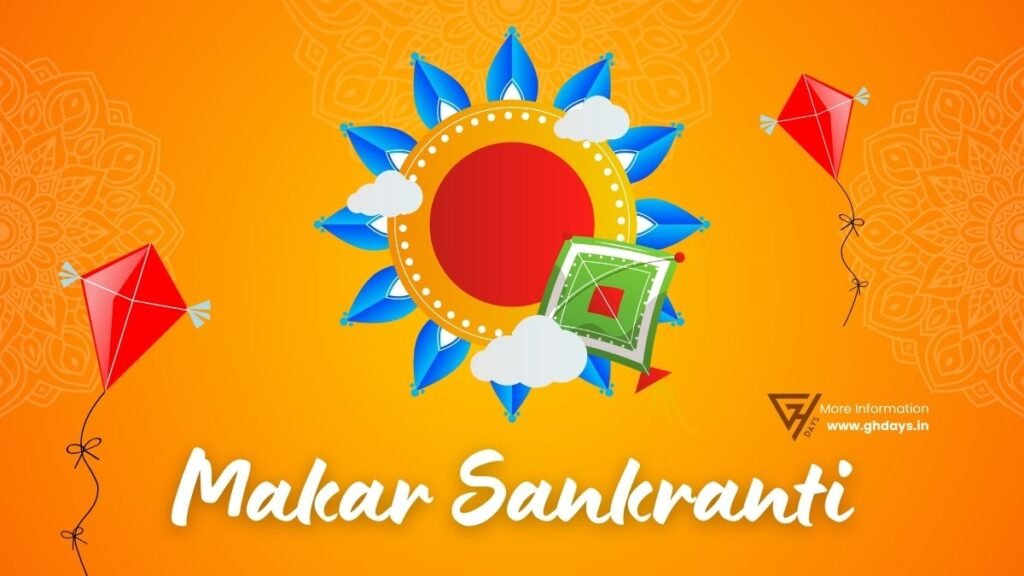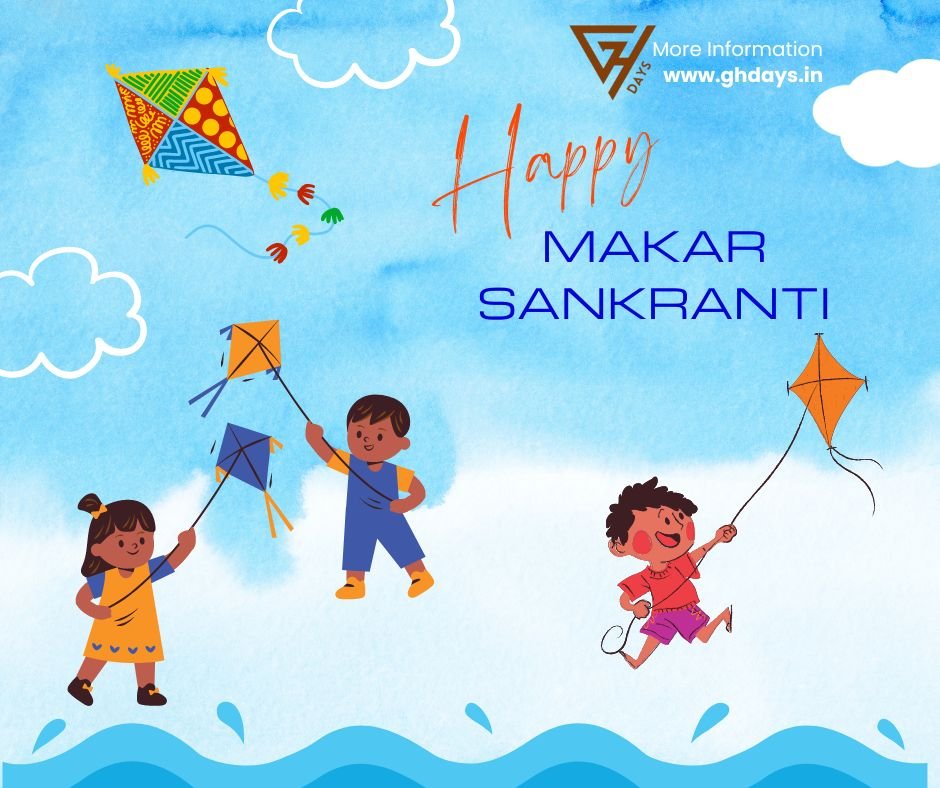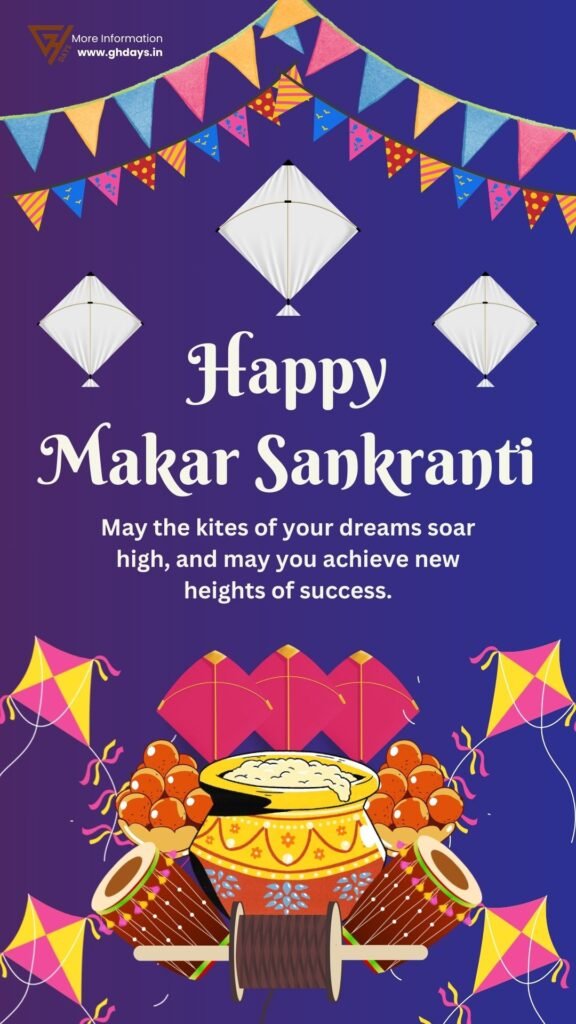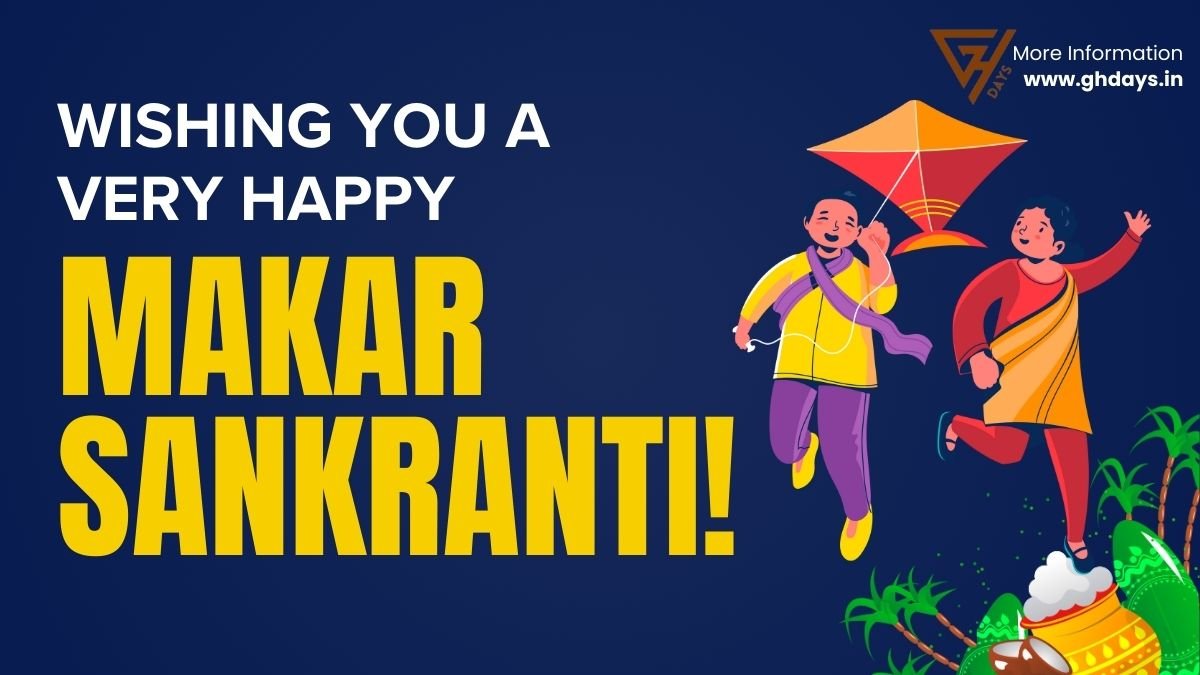Makar Sankranti Date 2025: Celebrating the Transition of Seasons – GHdays.in
Makar Sankranti is a vibrant and joyous festival celebrated in India to mark the transition of seasons. It is a harvest festival that symbolizes the transition from darkness to light and from ignorance to knowledge. On this day, people fly colorful kites, prepare special dishes, and exchange sweets with friends and family. The festival is associated with the worship of Lord Surya, the sun god, and many people take a holy dip in rivers and lakes. Makar Sankranti is a time for family gatherings, feasting, and spreading happiness. Join in the festivities on Tuesday, January 14th, 2025!
On Tuesday, January 14th, 2025, people all over India will be celebrating Makar Sankranti. This festival marks the transition of the sun into the zodiac sign of Capricorn, also known as Makar in Hindi. It is one of the most widely celebrated festivals in the country, with different regions having their own unique customs and traditions.
Makar Sankranti Date 2025: Tuesday, 14 January
Makar Sankranti Date 2025
Makar Sankranti Date 2025 Overview
| Festival Name | Makar Sankranti |
| Other Names | Uttarayana, Sankranti, Til Sakraat, Magha |
| Observed by | Hindus, Buddhists |
| Liturgical color | Red |
| Type | Religious and cultural, harvest festival |
| Significance | A harvest festival, a celebration of the winter solstice |
| Celebrations | Kite flying, bonfires, fairs, Surya puja in river, feast, arts, dance, socialization, gau puja |
| Date | First day of makara masa, Bhogi (15 January in leap years; 14 January on all other years) |
| Holiday Type | Restricted Holiday |
| Homepage | Click here |
Makar Sankranti 2025: A Harvest Festival
Makar Sankranti is not only a religious festival but also a harvest festival. It is a time when farmers celebrate the end of the winter season and the arrival of longer days. The festival is observed with great enthusiasm, with people flying colorful kites, preparing special dishes, and exchanging sweets with friends and family.
When is Makar Sankranti in 2025?
| Makar Sankranti Date 2024 | Monday, 15 Jan |
| Makar Sankranti Date 2025 | Tuesday, 14 Jan |
| Makar Sankranti Date 2026 | Wednesday, 14 Jan |
| Makar Sankranti Date 2027 | Friday, 15 Jan |
| Makar Sankranti Date 2028 | Saturday, 15 Jan |
| Makar Sankranti Date 2029 | Sunday, 14 Jan |
Happy Makar Sankranti 2025 Wishes
- “May your life be filled with vibrant hues of joy, love, and tranquility this Makar Sankranti.”
- “May the festive spirit of Makar Sankranti usher in new opportunities and abundant blessings for you.”
- “Happy Makar Sankranti! May your days be painted with happiness and your skies adorned with success.”
- “May this Makar Sankranti shower you with a bountiful harvest of joy and prosperity.”
- “Like the sun embarks on its northward journey, may your path be illuminated with success and prosperity.”
- “May the joyous celebration of Makar Sankranti bestow upon you happiness, good health, and plentiful harvests.”
History of Makar Sankranti
Makar Sankranti, also known as Uttarayana or simply Sankranti, is a significant Hindu festival that celebrates the transition of the sun from Sagittarius to Capricorn. This festival typically falls on January 14th each year (January 15th in a leap year) and symbolizes a new beginning as the sun moves from south to north. Dedicated to the solar deity Surya, Makar Sankranti is observed with great enthusiasm across India, with various multi-day festivities taking place.
The customs and traditions associated with Makar Sankranti vary across different regions, known by distinct names such as Sankranthi, Magh Bihu, Pongal, and many more. It is a time for vibrant decorations, children going door to door for treats, cultural fairs, kite flying, bonfires, and communal feasting. The significance of this festival is highlighted by rituals like worshiping Surya, Vishnu, and goddess Lakshmi.
One of the most remarkable aspects of Makar Sankranti is the Magha Mela, mentioned in the Hindu epic Mahabharata, where devotees bathe in sacred rivers or lakes as an expression of gratitude towards the Sun. Every twelve years, the grand Kumbha Mela is observed during Makar Sankranti, attracting millions of pilgrims who gather to pray at the confluence of the Ganga and Yamuna rivers in Prayagaraj.
Makar Sankranti is a time for celebration, thanksgiving, and the preservation of various age-old customs and rituals. It holds immense cultural and spiritual significance, uniting people in joyous festivities and reverence for the divine.
Significance of Makar Sankranti
Every January, Makar Sankranti is joyously celebrated, dedicated to the revered Hindu sun god Surya. The significance of Surya can be traced back to the Vedic texts, particularly the sacred Gayatri Mantra in the Rigveda. This festival is also associated with the birth and arrival of the final Avatar of the Hindu deity Vishnu, Kalki.
Makara Sankranti holds great importance for spiritual rituals, as people partake in a sacred dip in rivers like Ganga, Yamuna, Godavari, Krishna, and Kaveri. This act is believed to cleanse past sins and bring about blessings. Devotees offer prayers to the Sun, expressing gratitude for their achievements and prosperity.
A common cultural tradition among Hindus across India is the preparation of sticky sweets made from sesame (til) and jaggery (gud, gur, gul). These sweets symbolize unity and happiness amidst individual uniqueness and diversity. In most regions of India, Makar Sankranti marks the initial phase of the Rabi crop and agricultural cycle, signifying a time for social gatherings, family bonding, caring for livestock, and reveling around bonfires. In Gujarat, the festival is celebrated with kite flying.
Makara Sankranti is a significant pan-Indian solar festival recognized by various names but observed on the same date or multiple dates around Makar Sankranti. It is known as Pedda Panduga or Makara Sankranti in Andhra Pradesh, Makara Sankranti in Karnataka, Telangana, and Maharashtra, Pongal in Tamil Nadu, Magh Bihu in Assam, Magha Mela in central and north India, Makar Sankranti in the west, and Makara Sankranti or Shankaranti in Kerala, among other names.
Happy Makar Sankranti 2025 Images

Happy Makar Sankranti 2025 Facebook and Stories

Happy Makar Sankranti 2025 Instagram Reels and Status

